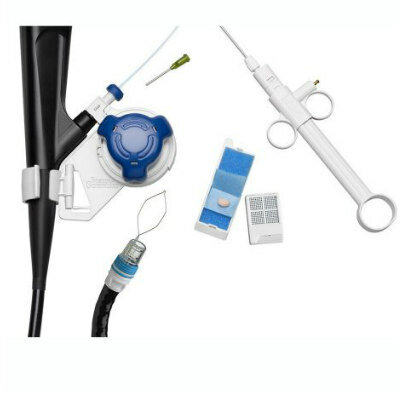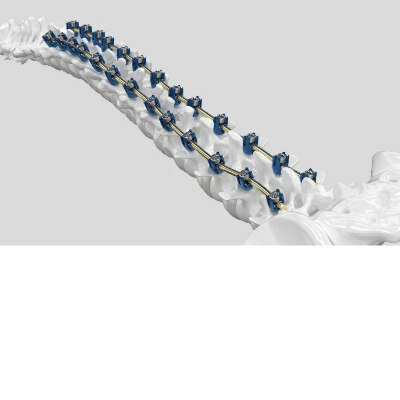AI Eye Scans Could Help Identify Heart Disease and Stroke Risk
|
By HospiMedica International staff writers Posted on 02 Apr 2025 |

New research has explored the advantages of utilizing artificial intelligence (AI) retinal imaging for screening cardiovascular diseases in general practice (GP) clinics and highlighted areas where improvements can be made.
The study, conducted at the Centre For Eye Research Australia (CERA, Melbourne, VIC, Australia), marks the first time AI-powered eye scans have been tested in GP clinics for cardiovascular disease screening. The research, published in npj Digital Medicine, found that the fast and non-invasive AI retinal scan could be seamlessly incorporated into primary care settings for detecting the risk of heart attacks and strokes. The study involved 361 participants, aged 45-70, who were patients at two GP clinics and had undergone a full or partial cardiovascular risk assessment—such as blood pressure or cholesterol testing—within the last six months. Each participant had a retinal scan taken using a desktop retinal camera, which captures images of the blood vessels at the back of the eye, followed by an AI-generated, real-time cardiovascular disease risk report.
Participants were also assessed using the World Health Organization’s (WHO) CVD risk chart, a widely recognized clinical tool that considers age, sex, smoking status, blood pressure, diabetes, and total cholesterol. The results from the retinal scans were compared to the WHO CVD risk scores to assess the correlation between the two methods. Both scoring systems were then validated using data from over 27,500 records from the UK Biobank. The comparison revealed that the retinal scan-based risk scores provided similar accuracy to the WHO scores in predicting the likelihood of heart attack or stroke over the next decade. The study showed a moderate correlation between the retinal scan results and the WHO risk scores—67.4% of results matched, while 17.1% were overestimated and 19.5% were underestimated by the retinal scan.
The retinal scan and WHO method displayed comparable abilities in predicting 10-year risks for coronary heart disease or stroke when matched against data from the UK Biobank. The study also found a 93.9% imaging success rate, with the majority of patients receiving a retinal scan that could be graded for cardiovascular risk. A survey of patients and eight participating GPs assessed their satisfaction with the technology and its potential for future use. Results showed that 92.5% of patients and 87.5% of GPs were satisfied with the AI-powered retinal scan. The researchers believe retinal scanning holds significant potential in expanding cardiovascular risk assessments in Australia. In the future, this technology could serve as an early triage tool, alerting GPs to patients who may require further investigation or testing.
“In the future I would see patients receiving an SMS, reminding them to have an eye scan which would send a report on their risk to their doctor who could then follow up with further tests if needed,” said Dr. Malcolm Clark, a Camberwell general practitioner whose clinic took part in the research and a co-author on the paper. “This could become part of regular health screenings like a cervical screening test or a fecal occult blood test.”
Related Links:
CERA
Latest AI News
Channels
Surgical Techniques
view channel
Bioprinted Aortas Offer New Hope for Vascular Repair
Current treatment options for severe cardiovascular diseases include using grafts made from a patient's own tissue (autologous) or synthetic materials. However, autologous grafts require invasive surgery... Read more
Early TAVR Intervention Reduces Cardiovascular Events in Asymptomatic Aortic Stenosis Patients
Each year, approximately 300,000 Americans are diagnosed with aortic stenosis (AS), a serious condition that results from the narrowing or blockage of the aortic valve in the heart. Two common treatments... Read more
New Procedure Found Safe and Effective for Patients Undergoing Transcatheter Mitral Valve Replacement
In the United States, approximately four million people suffer from mitral valve regurgitation, the most common type of heart valve disease. As an alternative to open-heart surgery, transcatheter mitral... Read morePatient Care
view channel
Portable Biosensor Platform to Reduce Hospital-Acquired Infections
Approximately 4 million patients in the European Union acquire healthcare-associated infections (HAIs) or nosocomial infections each year, with around 37,000 deaths directly resulting from these infections,... Read moreFirst-Of-Its-Kind Portable Germicidal Light Technology Disinfects High-Touch Clinical Surfaces in Seconds
Reducing healthcare-acquired infections (HAIs) remains a pressing issue within global healthcare systems. In the United States alone, 1.7 million patients contract HAIs annually, leading to approximately... Read more
Surgical Capacity Optimization Solution Helps Hospitals Boost OR Utilization
An innovative solution has the capability to transform surgical capacity utilization by targeting the root cause of surgical block time inefficiencies. Fujitsu Limited’s (Tokyo, Japan) Surgical Capacity... Read more
Game-Changing Innovation in Surgical Instrument Sterilization Significantly Improves OR Throughput
A groundbreaking innovation enables hospitals to significantly improve instrument processing time and throughput in operating rooms (ORs) and sterile processing departments. Turbett Surgical, Inc.... Read moreHealth IT
view channel
Printable Molecule-Selective Nanoparticles Enable Mass Production of Wearable Biosensors
The future of medicine is likely to focus on the personalization of healthcare—understanding exactly what an individual requires and delivering the appropriate combination of nutrients, metabolites, and... Read more
Smartwatches Could Detect Congestive Heart Failure
Diagnosing congestive heart failure (CHF) typically requires expensive and time-consuming imaging techniques like echocardiography, also known as cardiac ultrasound. Previously, detecting CHF by analyzing... Read moreBusiness
view channel
Expanded Collaboration to Transform OR Technology Through AI and Automation
The expansion of an existing collaboration between three leading companies aims to develop artificial intelligence (AI)-driven solutions for smart operating rooms with sophisticated monitoring and automation.... Read more
















